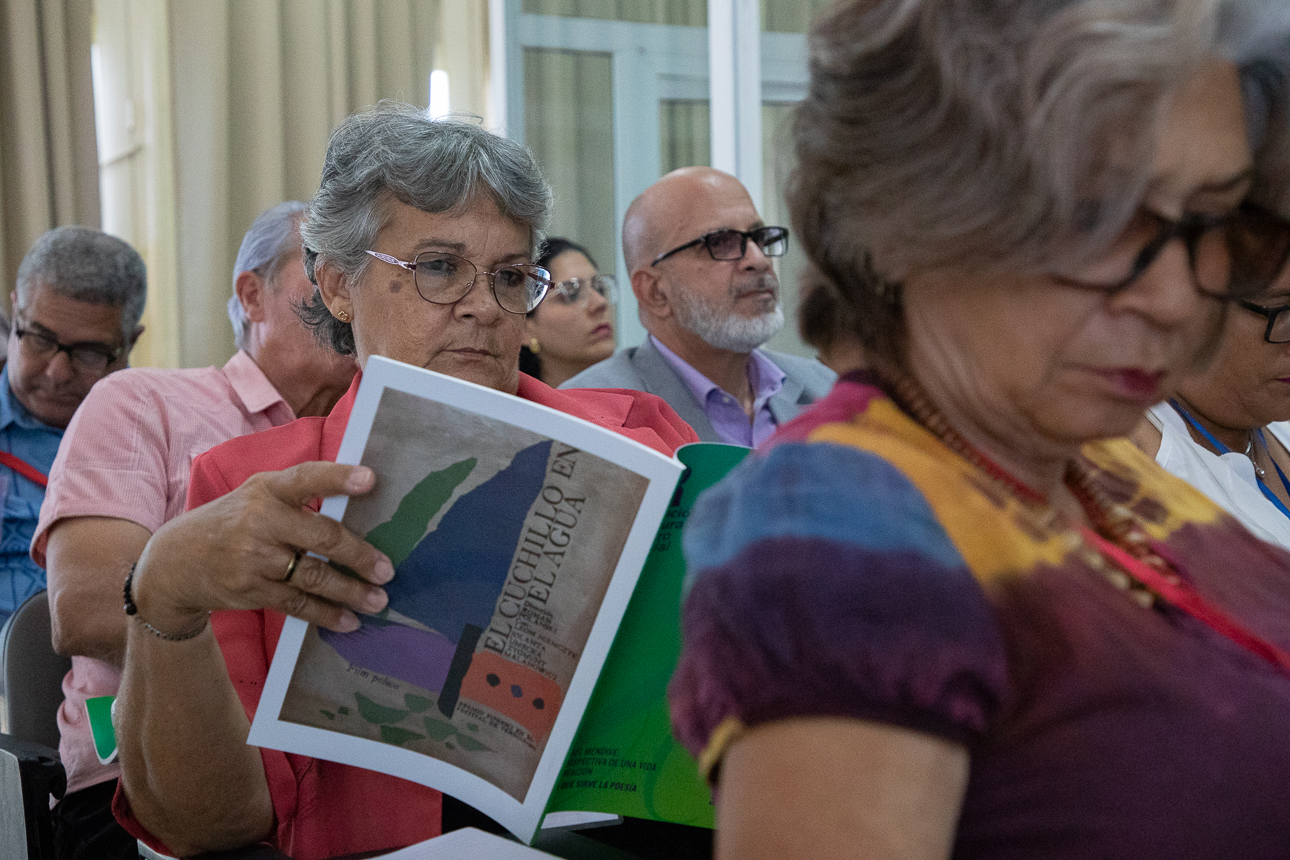CAMAGÜEY.- The National Colloquium on the Pride of Being Cuban was born with a mobilizing purpose: to make dialogue a foundational act that leads to action, that calls upon Culture and Education as the articulating arms of a new consensus. Camagüey, a city of historical pacts and deep memories, was the perfect setting. Although the desire for encounter was generous, the experience left us with urgent lessons about the ways of speaking and building collectively.
One of the great tensions of the event—and of so many other similar spaces—was time management. Beyond the initial delays, what was truly significant was how, once the interventions began, the boundaries of each participation became blurred. There was a sense of intoxication with words, as if the speaker felt that their moment was the only legitimate time, as if the urgency of their truth justified their overflow.
And the power of words, when exercised without awareness of shared time, can become an exclusive act. In the name of a passion for discourse, little room was left for plural listening, for equitable exchange. Everyone wanted to say something, but not everyone could be heard with equal attention. The colloquium—which etymologically means *conversation*—at times became a chain of monologues. The word became almost a stage of power.
 Sociologist María Teresa Caballero is a professor at the University of Camagüey. Photo: Leandro Pérez Pérez / Adelante
Sociologist María Teresa Caballero is a professor at the University of Camagüey. Photo: Leandro Pérez Pérez / Adelante
However, figures like Professor María Teresa Caballero, managed to provoke thought and emotion in just a few minutes. She embodied synthesis as a form of respect, as a pedagogy of shared time. Her ability to condense, to enunciate with clarity and passion, reminded us that brevity is not always superficial and that depth can also be concise.
Juan Eduardo Bernal, "Juanelo," a researcher from Sancti Spíritus, brought the wisdom of affection and oral tradition. His intervention wasn't just content, it was form. He spoke as one converses on newsstands, as one reflects from lived life, without artifice, with the necessary humor and just the right emotion. His perspective on the popular subject, emotions, history, identity, and the urgency of dialogue—not just bringing people closer together—was an example of how a speech can be mobilizing without being lengthy, how tone can be just as important as content.
Perhaps therein lies the key to thinking about future spaces: learning to coexist with time as a common good. Understanding that respect for the clock isn't bureaucracy, but an ethic of participation. That talking a lot isn't always synonymous with contributing, and that being boring—as Juanelo said— is also a form of cultural offense. We must practice synthesis, not as a reduction, but as a way of sharpening ideas, of thinking precisely, of reaching others clearly and without abuse.
This discussion leaves one certainty: Cuba needs to talk. But it also needs to listen. It needs encounters that don't dilute into speeches but rather build agreements and plans. The challenge is to turn this impulse of words into action, into a living Decalogue, into a daily commitment. Because it's not enough to know what hurts us; we must organize ourselves to heal.
Translated by Linet Acuña Quilez

